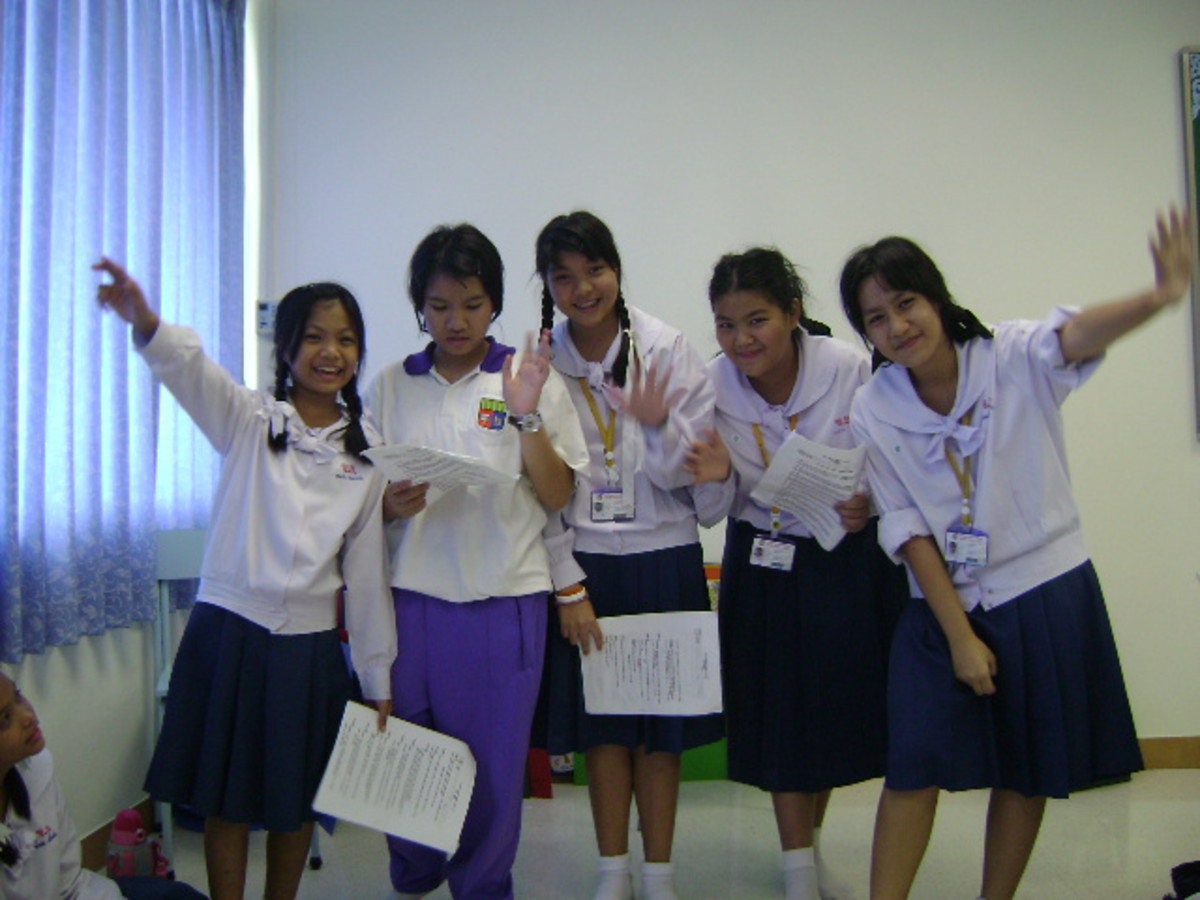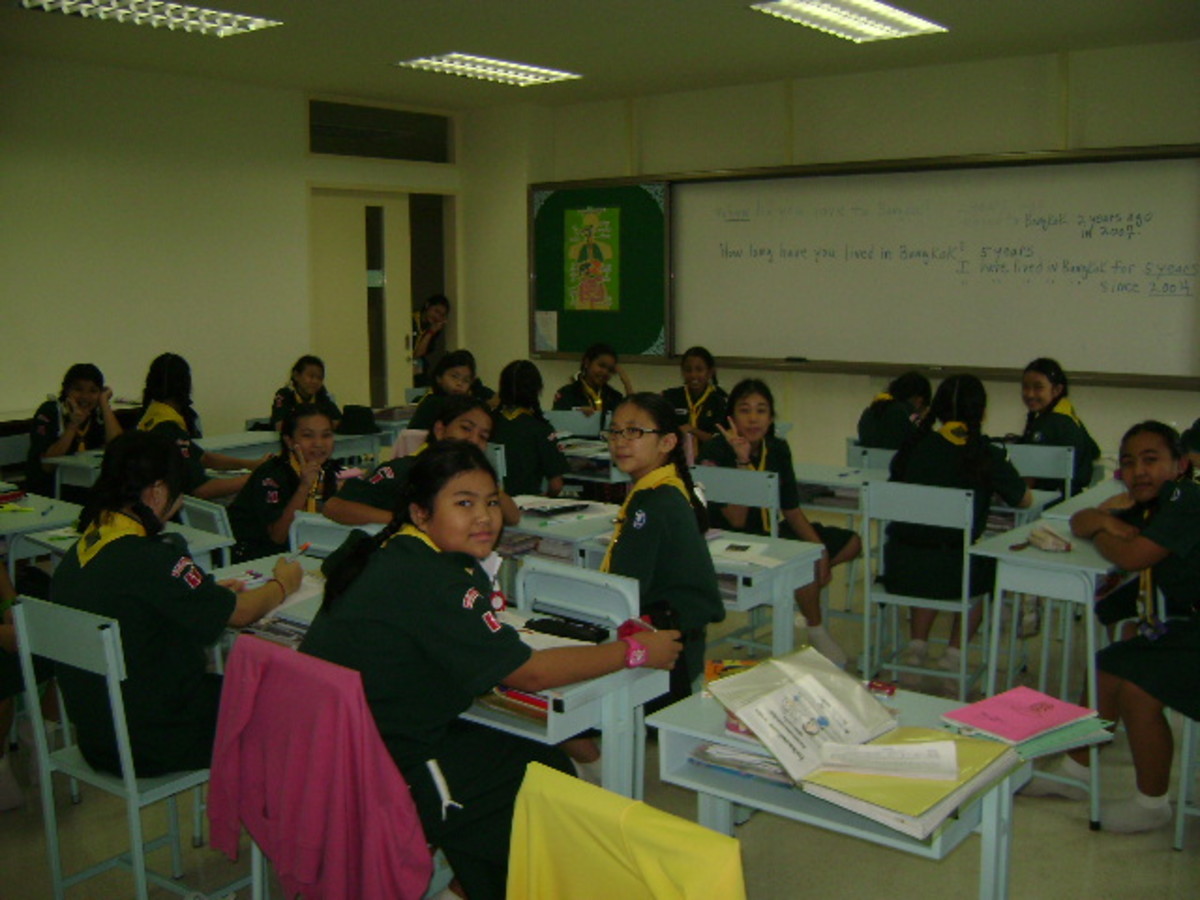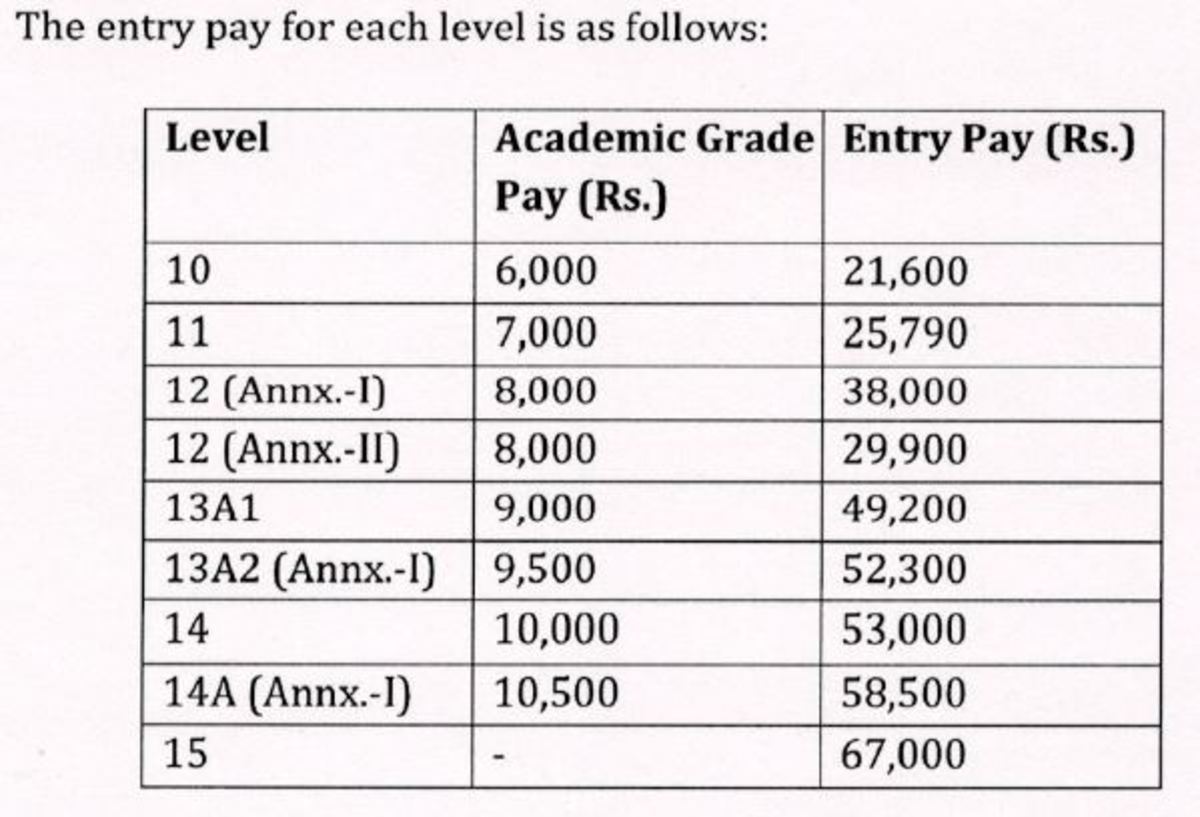Creating a Multilingual Community

Author: Consuela Popa
CREATING A MULTILINGUAL COMMUNITY
(A SHORT ARTICLE ON THE IMPORTANCE OF LEARNING ENGLISH AND FRENCH THROUGH MEDIA AND MODERN TECHNOLOGY)
Within the European space, within the European economic and cultural, social realities and worldwide, it is no longer a novelty that bilingualism, which implies the correct management of two languages(one of which could be understood to be the mother tongue, and the other, a foreign language), along with multilingualism, are a requirement in order to fulfill the continuously increased demands for competent communicators, professionals, career people, competent employees, etc.
In fact, even the notion of „bilingualism” has been challenged and „thwarted”, or double-standardedly defined, so to say, since it can not only imply the mother language and another one, a foreign, „target language”, as we use to call it in English methodology terminological vocabulary, but also whatever other two languages that we could be competent or proficient in, not necessarily including our native tongue, but meaning „beside our mother tongue”. We mean, thus, for instance, that as bilingual researchers we can create, why not, bilingual dictionaries of English and French, for instance, or of Spanish and English, or French and Spanish, neither of these languages being actually our mother tongue. We can devise special, bilingual or multilingual terminology dictionaries, or literature for children, for our students, methodological or grammar books, or simply literature, articles, everything that implies not only linguistic art, but communication, specialized fields, philological research, etc.
Or, following this thread, we could say that there is no such big deal as becoming trilingual, multilingual. It is an unfair limitation and only a psychological barrier to make suppositions such as the one that an English teacher or a French one, for instance, (who is a Romanian native speaker, let us take this example), could be „suspected”, in a limited way, of being a competent speaker only in his/her specialty area. Because the English or French teacher is supposed to be academically competent in that language and managing another one would not be at its best! People are different and they have different potential, including linguistic potential, and when we see that Americans, for instance, or other nationalities, while abroad, on (Christian) missions, or with different purposes, can learn proficiently Chinese, or Romanian, or whatever other language, very different from theirs, fast enough, we realize that psychological cliches like „impossible or hard foreign language to learn”, become nothing more than jokes, real ones!
There are people from non-philological areas, very competent and fluent speakers of at least two languages, none of which is their mother tongue, (and they could teach lessons of masterful academic use of those languages that they use and switch with so much passion),so the issue of being a philologist and not being able to speak or to become competent in more languages (at least two besides our mother tongue), is in fact, I dare say, ridiculous. I know people who are somehow too inhibited, psychologically I mean, or too modest, when they childishly state that they cannot speak a second foreign language-but nobody cannot be so limited, in fact, so as not to be able to realize that the human brain has no impossibilities in getting the linguistic reflexes right or in managing the linguistic patterns of at least two other foreign languages, if there is enough good-will and diligence on that person`s side. With modern means, with access to media and most importantly, with enough exposure to language, especially a person who has successfully graduated at least one foreign language at an academic level can use his or her education, training, skills, acquired during the process of learning a language, in order to be able to make comparisons, to work on the grammar structures and on the linguistic structures as a whole, and to apply his previous „discipline” or „approach” in order to learn other languages as well. Wherever we do that, and especially if we do that in a native country environment, with modern device and „target language only”, methods, it is even a stronger reality worthy to be analyzed, which shows that learning a foreign language becomes a lot easier and eventually, it becomes a reality, if we use the right methods and means.
It would be an unfair limitation for us to think of bilingualism only in terms of being able to speak a second language, other than our mother tongue. Indeed, there had been in the past and still are, today, people with great ability and passion for switching at least two languages with quite a lot of ease, people that are called by the general term of „polyglots”-and this was not to be understood as „geniuses’, but simply „polyglots”, or very educated people who could manage more languages with ease, talent, creativity. And not only did they read serious literature in those languages, but they made full use of every opportunity that they might have had in order to get to use that language in real context, in order to really communicate through that language proficiently.
English and French have been, until recently, two foreign languages that have been jointly mentioned or thought of as the most common „foreign languages” known by Romanian students and taught in schools at the highest standards. Indeed, we also have a history of German native speakers in Transylvania and of German as a foreign language which was taught in schools, partially because of our history of living together with the Saxon origin population especially in the mentioned area, Transylvania. We have German Highschools –still bearing the German denomination, within their title taken as a whole, in Bucharest as well as in other towns. Also Italian, which was probably taught on a smaller scale because it had a history from before the Second World War (my grandmother used to study Italian and French in school). But predominantly, especially since the communist period and afterwards, we have been exposed to a great extent, first, to the French culture, literature or French teaching tradition(during our parents ` time up until, let us say, the 1985`s-1986`s, when English became the first foreign language introduced on a large scale in Romanian schools).
Then, we have been exposed to English as a first foreign language choice. English was very much demanded in schools even before I started to learn it officially, which meant, during the communist period, as early as the 5th grade for me, for instance. French was my second foreign language studied, and in secondary school, my excellent teachers of English and French instilled me with the necessary basis in order to further learn these two languages with passion and ease and to graduate as a Master of Arts, later on, within a mixed profile, English-French („Translators”-specialty), languages department.
English has remained and, despite some voices, will remain, I think, the most powerful language taught and spoken as a foreign tongue, by Romanians as well. It will always exert a strong effect on people`s minds and souls, no matter what other influences might occur. I say this because of another emerging reality: Spanish, which has become almost another second foreign language. Some people say that it has overcome and replaced French already. And if I am to reflect upon my own fascination over it, Spanish can really fascinate us, nowadays, probably as intensely as English does.( As for myself, I have started to learn it via my already good enough French grammar and language structure, through television soap operas and Spanish language broadcast mainly, then successfully undertaken a D.E.L.E exam exciting, preparation adventure). Then, along with many Romanians who are now creating this trend, very much excited with speaking and learning every day more of Spanish language and culture, I can say that Spanish is beginning to challenge our desire to learn more languages, if not overcome English, for this would be maybe too much to state, since culturally, I think that English will always surpass any other language.
If we think about the amount of information that is predominantly in English still, then any other „language rival”, would not be strong enough, I guess. Practical, cultural and economic reasons will maintain English ahead of other languages, in my opinion. The Council of Europe, at its latest 2010 edition, has issued some surveys in which it ackowledged the newly emerging „Spanish” reality, that Spanish speakers become more and more numerous, overcoming the French speakers, and that, still, amazingly or not, even in Canada, the demand for English classes is so high that it puts French in a quite serious difficulty, especially in areas where they really need to introduce both languages for cultural or geographical, rather practical, reasons! English can „take a French specialist” out of his business, because of its high and sometimes exclusive, demand, and that is another reality that statistical figures show.
Still, culturally speaking, it is already known that we are going through a linguistic crisis, in spite of the rich post-modernist period in teaching languages during which we are supposed to be at the moment. This means that in all languages, not only English or our own, native, tongue, people do not instruct themselves properly anymore, they do not read so much anymore, the general linguistic level is lower, globalisation and the general crisis have brought about, as a consequence, also a cultural and linguistic deficiency.
But as teachers of English and French and of modern languages, in general, we can still prescribe our „doctor`s advice recipe”. That is, we can educate our students in order to gather, first of all, values regarding the culture and language that we teach them, along with fundamental principles. Even away from school, if there is a will, there is a way, as an old English proverb says, and if you really wish to infuse yourself with a foreign culture that you like, then through media, through the internet, through creating contacts from abroad and building up bridges, we can always succeed ! You do not have to depend upon your teacher „taking you by the hand and holding you” anymore, once you have started to „grow” a little, at least mentally. We must make our students aware of their individuality and responsibility as learners, we must make them aware of another „basic” ingredient, which is „learner autonomy”- a mentality „sports” that has been practiced in western schools and environments for a long time already; this is a winner`s mentality, passion being the key word:doing everything with passion and dedication leads to success.
The fundamental principles in teaching English, French, Spanish or other languages as foreign languages are not magical words, but they can really do wonders if applied with dedication and faith: exposure to language, or proper comprehensible input coming from the teacher and not only, maximizing the time spent in using the target language, target language use only as much as possible and depending upon the level of our students, modern means, like television and radio, a lot of listening in the target language; last but not least, modern device in schools, which we lack completely as compared to what we see whenever British trainers get us a glimpse of what it means such stuff as : interactive whiteboard technology, all kind of „magic” boards and animation based device, computers for every pupil (and teacher), for our scientific daily use in schools, in the language laboratory, and other things, innovative device of all kind that lack completely in our country, unfortunately, and that still, unfortunately, make up what is called „the separation between „us” and „them”-meaning western schools, and local ones. Without the need to seem like an aggressive, criticizing, journalist, I think this is the reality that also still needs to be mentioned, with the due respect for truth, whenever we pretend that we wish to speak up our minds with regard to the issue of „reforming” education, „modern methods and means” ! (This is an issue that for me, a person that always strives to have her neurons run freely and speak up my mind without having to pay a fine or a tax upon my ideas, seems like a blasphemy in the actual crisis context for intellectuals)!Once you have seen what the other realities are, I guess that pretending that we speak about modern technology in Romanian schools with no budget money really given for this purpose is just hypocrisy. And I am really lenient comparing to the criticizing I have heard, regarding this issue, from normal people in the field from abroad, whenever they get to know about our real situation. But of course, Romanian „inventiveness” can surpass every crisis and reach up that high level, and we can of course, now, more than ever, create our own modern „device”, improvise it, through partially, or why not, entirely using the money from our already cut-off, crisis, salaries in order to create everything from nothing! That would be an alternative!(Besides another already known alternative, that of an invitation for us to emigrate-which is only normal, since we are now a global community and we have almost become, in many ways, multicultural!
The complex language exams and tests are, after all, also used for different emigration purposes, the importance of which cannot be underestimated either! Especially for students, researchers, and people who are so determined to leave our country for native, English speaking, or foreign language speaking, environments!
Of course, as an alternative to whatever there is that we lack in schools as a device –we have our immensely imaginative and innovative minds as Romanians. We have our natural talent for languages, our gifts from God, and our return to some long-forgotten values, such as classical, intensive and extensive, reading, methods, that we can instill to our students; we can have personal(-ised), individual and through study of literature and academic grammar, methods of learning languages for different types of professions, for highly communicative means, like we have witnessed from our British trainers and, I dare say with all respect, fathers of modern languages methodology.
Modern languages teaching and learning should be adjusted to all types of learners; the psychology of teaching or at least of transmitting, this way of learning, should work for ordinary students, language students as well as learners of languages that learn languages as professionals from other fields, such as the medical field, law, economics, engineering, computer science, and any other field, in no particular naming order, since all should be given their due respect and consideration.
As a linguist, I know from my own experience that learning a language means opening up a new universe-and that as many languages you learn, you get infinitely larger a personal universe and intellectual and spiritual satisfaction that can be compared, in my opinion, to a religious experience!
Let us hope that everyone of us, as well as our students, will know what foreign languages mean and will open up their minds and hearts in changing the world! If we have strong will, ideas, talent, and above all, passion and if we are true to ourselves, we can really do wonders! All we have to do is believe in God and use our natural gifts properly! And realize that any foreign culture means a „heaven” door opened for us, and seize that opportunity!
Note : This article has been devised in order that the ideas developed in it should be presented within a national debate held here in Romania, national debate for English and French teachers, held in Craiova. I have last edited this article version on the 28th of April 2011, as my computer archive showed. Now, I am raising this article on the Hubpages with excitement !
References
Krashen, Stephen, D. Second Language Acquisition and Second Language Learning. Prentice-Hall International, 1988
Krashen, S (1985). The Input Hypothesis: issues and implications. Longman, New York
Harmer, Jeremy, The Practice of English Language Teaching, Pearson Longman, fourth edition








